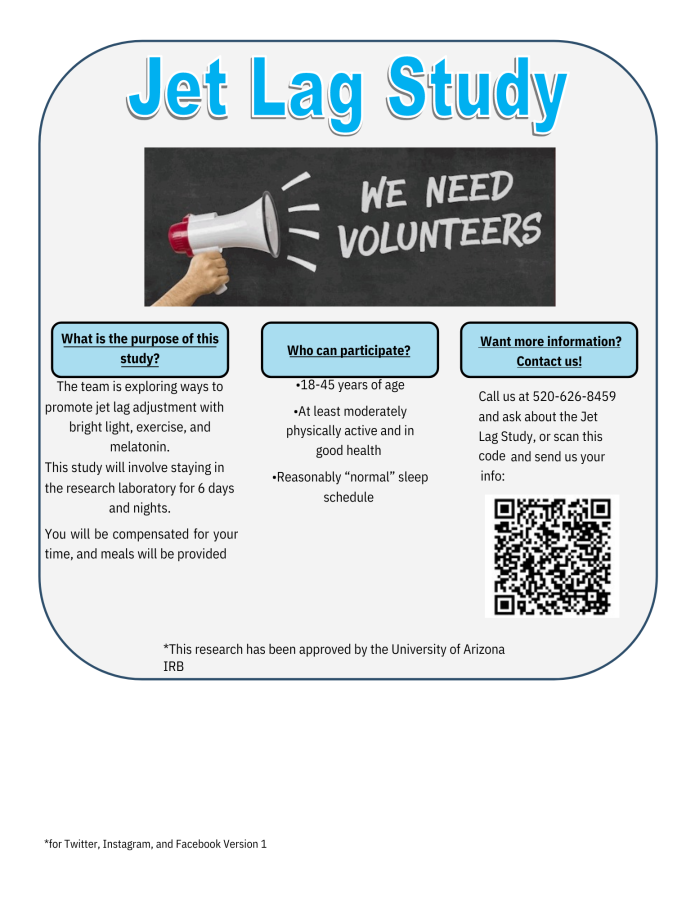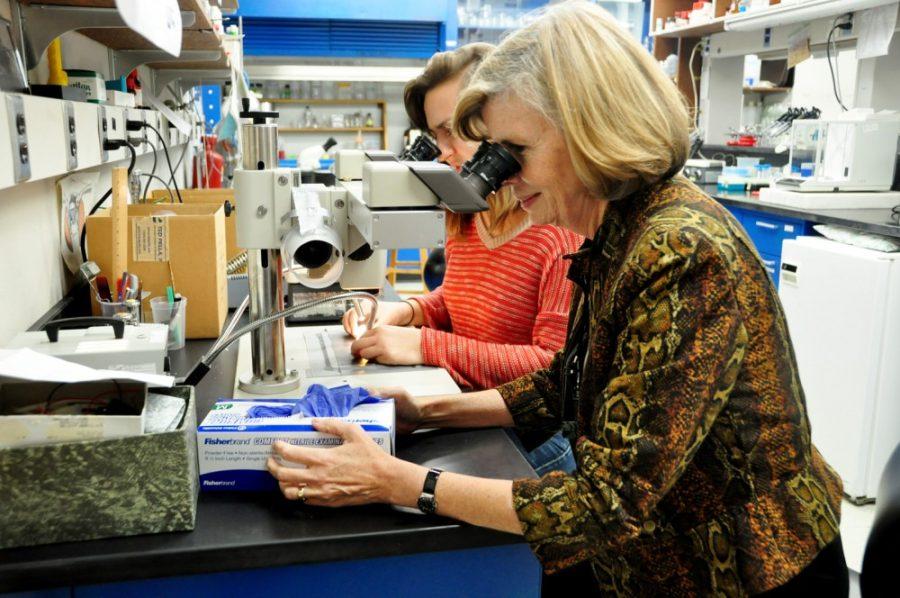University of Arizona researchers are seeking participants in a new study that looks for ways to combat the effects of jet lag, with a focus on circadian synchronization.
The circadian rhythm refers to the cycles of the body’s internal clocks that affect an individual’s sleep patterns. The study is funded by the Department of Defense to support the special operations forces, who may suffer from poor circadian synchronization due to rapid overseas deployment, night operations and shift work.
Site principal investigator Dr. Salma Patel, assistant professor of medicine at the UA, noted that although service members are the main focus, additional working groups may benefit from the results of the study.
“Other shift workers like nurses, doctors and whoever else is affected by jet lag, people who travel for a living like musicians and actors … suffer a lot from daytime performance,” Patel said. “If we can come up with a way to optimize their function, that will eventually improve one, their performance, and two, their health outcomes.”
The jet lag study is seeking participants on an ongoing basis over a span of two years. According to principal investigator Shawn Youngstedt, professor at Arizona State University, they are looking for individuals who are moderately active, between the ages of 18-45 and maintain a reasonably normal sleep schedule. Volunteers will be paid $500 on a prorated basis and spend around three weeks for the study.
The first two weeks will be primarily at home filling out a food and activity diary, along with a sleep schedule. The last week is spent in the laboratory where the researchers will simulate jet lag along with three different treatments, according to Patel.
Individuals who are interested in participating in the study can sign up via the interest form, scanning the QR code pictured in the flyer or calling 520-626-8459.
The jet lag study is also looking for additional student workers. Those interested can contact the principal investigators at Shawn.Youngstedt@asu.edu or salmapatel@arizona.edu.
Follow the Daily Wildcat on Twitter









